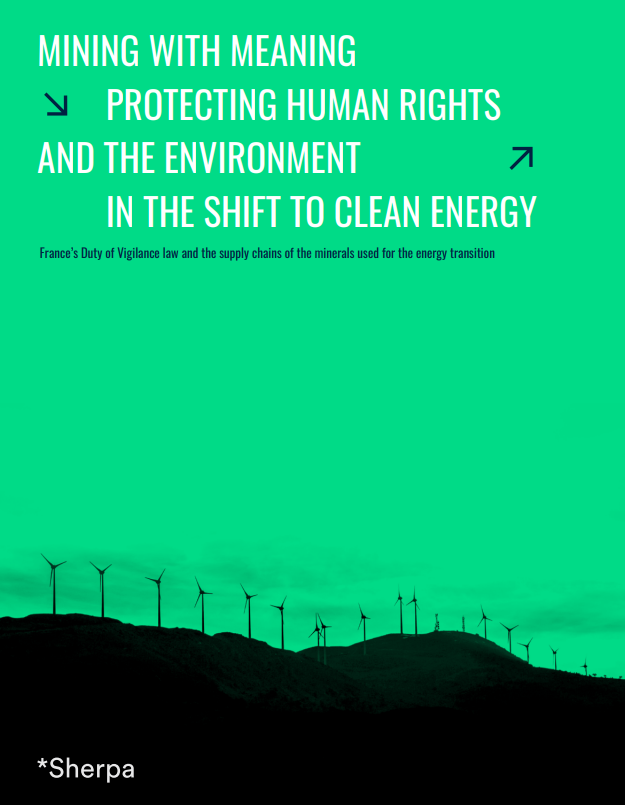October 29, 2020 – In a study on vigilance in the supply chains of minerals used in the energy transition, Sherpa highlights the shortcomings of the measures presented in the vigilance plans of nine French companies, more than three years after the adoption of the Duty of Vigilance Law.
Fighting global warming requires a reduction in greenhouse gas emissions to reach the climate targets set out in the Paris agreement [1]. However, the current implementation of the energy transition, through the development of electric mobility or the deployment of renewable energies, requires increasing supplies of certain minerals used to produce batteries or solar panels. The World Bank has identified at least 17 minerals essential for these technologies, such as lithium, cobalt, and neodymium [2].
Yet the extraction and supply of these minerals can lead to environmental and human rights adverse impacts. The Business and Human Rights Resource Centre has documented more than 160 cases of human rights and environmental allegations for the 37 largest companies involved in the extraction and use of minerals crucial in the transition to low-carbon technologies [3].
Sherpa sought to verify whether the vigilance plans published by nine French companies subject to the Duty of Vigilance Law contain reasonable and adequate vigilance measures to identify such risks and prevent such impacts.
In particular, our research shows that the content of the vigilance plans analyzed is insufficient, as the risks associated with these minerals rarely appear in these plans, and the listed measures are often imprecise and detached from the companies’ activities.
Companies often limit themselves to presenting tools that they were already using before the law existed, such as audits or certifications, but which in practice do not make it possible to avoid damage linked to the use of these minerals.
Jean François, a lawyer at Sherpa
For the energy transition to be sustainable, it must not take place at the expense of human rights and the environment in the countries where these minerals are mined. To reach this goal, companies involved in the extraction and use of these minerals must implement appropriate measures to identify risks and prevent these adverse impacts, in accordance with the duty of vigilance Law.
Detailed analyses of the vigilance plans of the nine companies covered are available on this website :
Eramet Imerys Electricité de France (EDF) Engie Nexans Total S.A. Bolloré PSA Automobiles S.A. Renault
Our study summarising the content of these nine analyses and including our recommendations is also available.
Read the study

[1] The agreement provides that the global temperature must not rise by more than 2°C above pre-industrial levels and limits the rise in temperature to 1.5°C.
[2] See the World Bank Report: “Minerals for Climate Action: The Mineral Intensity of the Clean Energy Transition“.
[3] See the Transition Minerals Tracker